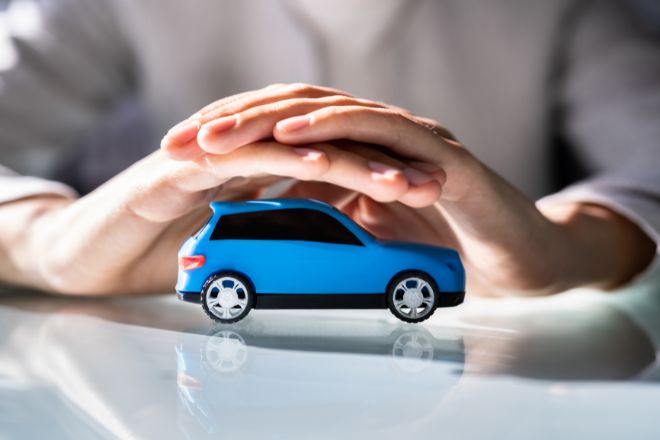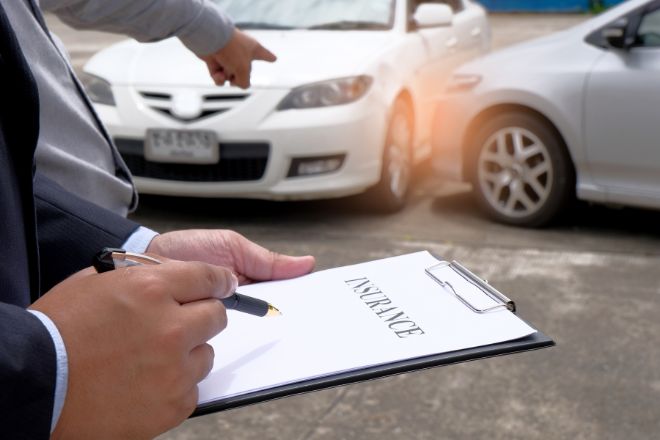Accidents can occur at any time and it’s not uncommon to find yourself in the unsettling situation of hitting a parked car. Whether it’s a momentary lapse of attention or a misjudgment while maneuvering your vehicle, it’s essential to handle the situation responsibly and take appropriate actions. In this comprehensive guide, we will walk you through the steps you should follow when you’ve hit a parked car. From assessing the damage to notifying the owner and reporting the incident, understanding these steps will help you navigate the situation with integrity and minimize any negative consequences.
Assess the Damage and Document the Incident
Immediately after realizing you’ve hit a parked car, it’s crucial to assess the damage to both vehicles. Take a moment to gather yourself and park your vehicle in a safe location, if possible. Carefully examine the extent of the damage on both vehicles, including any visible scratches, dents, or other signs of impact. It’s essential to document the incident to have a record of the damage for insurance purposes and potential legal requirements.
Start by taking photos or videos of the scene, capturing the positioning of the vehicles, the damage caused and the surrounding area. These visual records will serve as valuable evidence later on. Additionally, note down any relevant details, such as the time and location of the incident, the color, make, and model of the parked car and any other pertinent observations.
Find the Owner and Notify Them
Once you’ve assessed the damage and documented the incident, it’s essential to make an effort to find the owner of the parked car. If the parked car is in a residential area, check nearby houses or buildings to see if anyone might be the owner or can provide information. If you’re in a public parking lot, inquire with nearby businesses or establishments if they can help you locate the owner.
If you’re unable to find the owner immediately, leave a note on the parked car with your contact information. Include your name, phone number and a brief explanation of what happened. This will allow the owner to reach out to you to discuss the incident and proceed with the necessary steps. It’s important to provide accurate contact information to facilitate open communication and address any concerns.
Report the Incident to the Authorities, If Necessary
Depending on the severity of the damage or local regulations, you may need to report the incident to the authorities. In some jurisdictions, it’s mandatory to notify the police when involved in a car accident, regardless of the circumstances. Familiarize yourself with the specific requirements in your area to ensure compliance.
If you need to report the incident to the authorities, contact the local police non-emergency line and provide them with accurate details of the accident. They will guide you through the necessary steps, such as filing an accident report or obtaining a reference number for insurance purposes. Cooperate fully with the police and provide them with any requested information or documentation.
Inform Your Insurance Company
After addressing immediate concerns, it’s crucial to inform your insurance company about the accident. Contact your insurance provider as soon as possible to report the incident and provide them with all relevant details. Be prepared to share information such as the date, time and location of the incident, along with a description of what happened, the contact details of the parked car’s owner and any documentation you have collected.
Your insurance company will guide you through the claims process and provide instructions on what information they require to assess the damage and initiate the necessary steps for repair. It’s important to cooperate fully with your insurance company, provide accurate and truthful information and promptly respond to any requests they may have. This will help ensure a smooth claims process and resolution of the incident.
Take Responsibility and Seek Legal Advice, If Needed
Taking responsibility for your actions is essential when you’ve hit a parked car. Acknowledge your mistake and be prepared to handle the consequences of your actions. If there are legal implications or concerns regarding liability, it’s advisable to seek legal advice to understand your rights and responsibilities fully.
Consulting with an attorney specializing in motor vehicle accidents can help you navigate any legal complexities, particularly if there are disputes or disagreements regarding fault, compensation, or insurance coverage. They will provide guidance based on the specific circumstances of your case and ensure you make informed decisions throughout the process.
Conclusion
Finding yourself in the situation of hitting a parked car can be distressing, but by following the appropriate steps, you can handle the incident responsibly and minimize its impact. Assessing the damage, locating the owner, notifying them, reporting the incident to the authorities if necessary and informing your insurance company are all crucial steps to take. Remember to take responsibility for your actions and seek legal advice if needed. By approaching the situation with integrity and acting in accordance with legal requirements, you can navigate this challenging situation with professionalism and goodwill.







